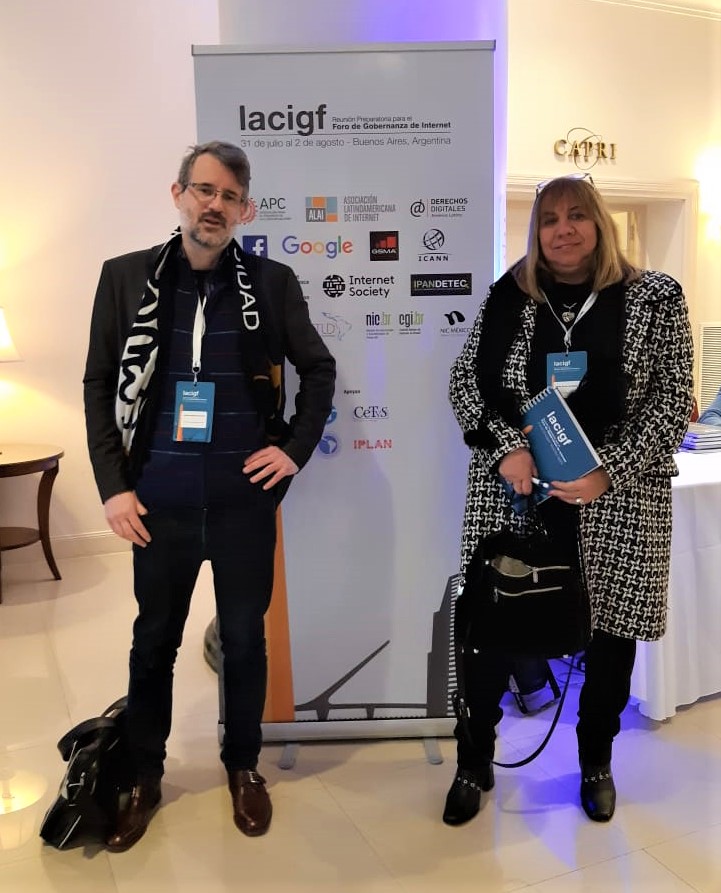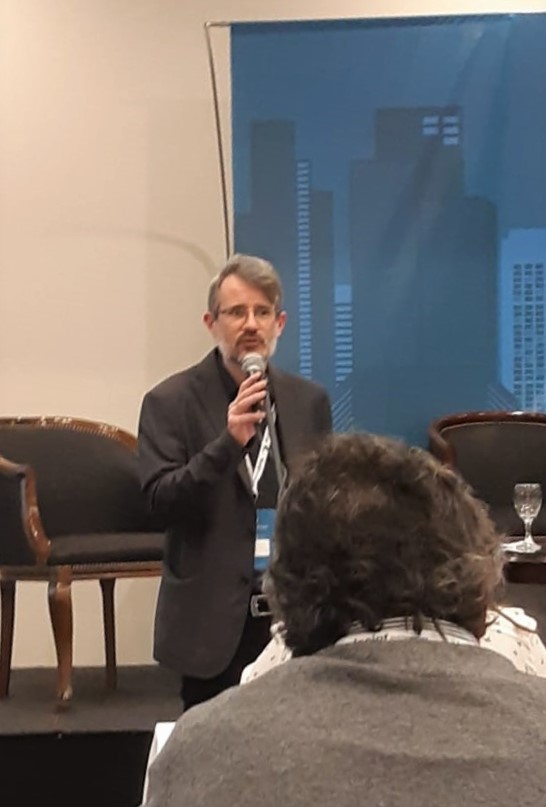Open, Transparent and Free: Libraries Defend an Internet that Works for Users at LACIGF
22 August 2018
Given libraries’ contribution to expanding access – and reliance on the right laws and infrastructures – they have an important place in discussions about the future of the Internet. The Latin America and Caribbean Internet Governance Forum is no exception. IFLA’s representatives at the latest edition provided the following report.
 Between July 31 and August 2, the 11th Latin America and Caribbean Internet Governance Forum (LACIGF), a regional preparatory meeting for the Internet Governance Forum (IGF) took place in Buenos Aires, Argentina. Its goal – to identify regional priorities for policies on infrastructure, and network management and administration.
Between July 31 and August 2, the 11th Latin America and Caribbean Internet Governance Forum (LACIGF), a regional preparatory meeting for the Internet Governance Forum (IGF) took place in Buenos Aires, Argentina. Its goal – to identify regional priorities for policies on infrastructure, and network management and administration.
Just like other IGF meetings, LACIGF uses a multistakeholder model. This allows for and promotes participation and dialogue between actors from the public and private sectors, civil society, the technical community and the academic community. All actors take part on an equal footing, with the objective of advancing discussion and building consensus.
During the three days, a great variety of topics of great relevance for libraries were addressed, notably relating to ethical questions and Internet administration.

These included online data privacy and information self-determination; net neutrality and the policies that legislators and users apply in this regard; the information divide gap from the social, political and gender point of view; fake news and misinformation campaigns; community networks and the dichotomy between the the profit motive and the need for inclusion; policies on freedom of expression; intermediary regulation, and finally the applications and problems of today’s model of Internet governance.
Active participation from all stakeholders made for a rich debate, guided by respect and the desire to come to shared conclusions. Representatives from 20 countries made up an audience of more than 300 attendees, with care taken to ensure equal gender participation.
IFLA was represented through its representatives in Argentina, María Silvia Lacorazza, President of ABGRA (Association of Graduated Librarians of the Argentine Republic) and Andrés Reinoso, Information Coordinator of NPSIG (IFLA). We made the most of the opportunity to highlight the value of libraries as a vital part of the Internet ecosystem.
In particular, they underlined the following key strengths of libraries:
- A socially recognized physical space of neutrality
- Specialists in the workings and management of information
- A leading institution in information technology
- A unique place for community formation and development
- An institution empathetic to society and its needs
We also stressed that IFLA supports and encourages solid frameworks that guarantee net neutrality, since libraries themselves are committed to their role as guarantors of access to information. And at the closing, we raised awareness of IFLA’s advocacy for transparent, neutral and free access to information on the Internet.
Find out more about how you can Get into the Internet Governance Forum, as well as about IFLA's broader work on libraries and the information society.